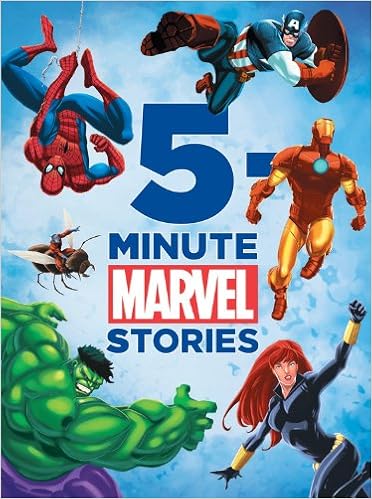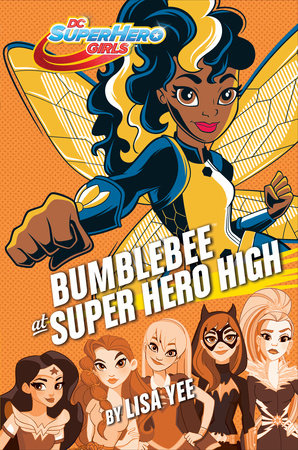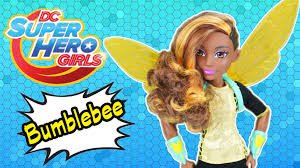|
|
Post by Reptisaurus! on Apr 17, 2018 17:49:20 GMT -5
Mainstream is important. I'm a strong believer in comics as an artform, I'm amazed by the quality, emotional depth, experimentation and adult complexity of the last 20 years of the graphic novel boom...
But Marvel and DC superhero stuff. Why does this appeal to you when (A) the median age of hardcore superhero fans is 9 and (B) corporate produced in-continuity superhero comics really don't produce much "great" work compared to other media - visual arts or movies or literature or music or even TV - er... TV in the last ten years especially.
|
|
|
|
Post by Slam_Bradley on Apr 17, 2018 17:59:42 GMT -5
I think you have at least one flawed premise. Premise A has almost certainly not been accurate since at least the 1970s.
I'm not convinced that Premise B is any more valid. If you accept Sturgeon's Law (and why wouldn't you) you're presupposing there is a greater percentage of worthwhile art in the other forms than there is in "corporate" comics. I'm not remotely convinced that's true. The vast majority of movies, literature, etc. is just as vapid as "corporate" comics.
|
|
|
|
Post by Deleted on Apr 17, 2018 18:11:26 GMT -5
We had a long discussion of what is "mainstream" in comics a few years ago in this thread. I don't think you can call direct market comics that only sell to a niche customer base mainstream. Comics that do sell to a mass audience (things like Raina Telgemeier that are on sale in places like Meijer, Walmart, Target etc, where mainstream audiences shop) are no longer super-hero comics, so if we are being honest I don't think people who like super-hero comics are reading mainstream comics anymore. They are reading a niche genre sold exclusively in niche destination shops or on niche internet shopping apps (like Comixology) and in places that sell anything or everything whether mainstream or not (Amazon). As for why people still read Marvel or DC, I'd say for most of the aging customer base it is nostalgia or habit. There was a time when comics and superheroes could be conflated to be the same thing. That's no longer the case, but some people's reading habits are still based on that time. For many of that customer base, the quality of the story and the creators matter far less than that it features their favorite character. -M |
|
|
|
Post by rberman on Apr 17, 2018 18:26:46 GMT -5
Superhero comics were popular with G.I.s in WW2 and college students in the 60s, so premise A is definitely flawed. What kids can afford $4 a comic for multiple titles?
i find myself more drawn to the character interaction and themes and art than to the “who punched whom” fight details.
|
|
|
|
Post by wildfire2099 on Apr 17, 2018 18:38:45 GMT -5
For new comics, I find the I am most drawn to the books where they are doing some new with existing characters, but in a way that still make sense with the past... stuff like Champions, the Superman books with Jon, and Thor. I'm less interesting when they do random stuff that seems more for marketing than story (like Ironheart) or when they just take a story they have in their heads and post it onto an existing character.
|
|
|
|
Post by Reptisaurus! on Apr 17, 2018 18:53:29 GMT -5
I think you have at least one flawed premise. Premise A has almost certainly not been accurate since at least the 1970s. I'm not convinced that Premise B is any more valid. If you accept Sturgeon's Law (and why wouldn't you) you're presupposing there is a greater percentage of worthwhile art in the other forms than there is in "corporate" comics. I'm not remotely convinced that's true. The vast majority of movies, literature, etc. is just as vapid as "corporate" comics. Your View My View, of course, but I suspect the overwhelming majority of adults don't give a tenth of a crap about superheroes. And there are a lot more adults who aren't actively opposed and might watch a superhero movie once a year, but aren't particularly engaged with the culture. ANd there are a lot of kids who REALLY LIKE SUPERHEROES. I don't have any hard evidence but I worked at Wal-Mart for 2 days once and I made notes of all the superhero stuff... and something like 70% of it was aimed at kids, and much more at younger children than teens and tweens. There is an adult market for superheroes, but it is much, much smaller than the kid market, and there are many fewer 4-11 year olds than there are 12-109 year olds. From a marketing perspective, your biggest audience for superheroes are children. And superheres are - at their core - simplistic power fantasies which will appeal more to people without much power.... IE children. (B) Eh, I think the comics code ended the possibility of worthwhile art aimed at adults within the comic studio system for years and years and years. SPecifically everyone working in adult comics in the US (and many in the UK, EG Alan Moore) was influenced by the Kurtzman edited EC stuff. WHich is why there wasn't a comic equivalent of Chinatown or the Godfather in comics for years and years... corporate comics were forced to be for kids. |
|
|
|
Post by Reptisaurus! on Apr 17, 2018 18:55:07 GMT -5
We had a long discussion of what is "mainstream" in comics a few years ago in this thread. I don't think you can call direct market comics that only sell to a niche customer base mainstream. Comics that do sell to a mass audience (things like Raina Telgemeier that are on sale in places like Meijer, Walmart, Target etc, where mainstream audiences shop) are no longer super-hero comics, so if we are being honest I don't think people who like super-hero comics are reading mainstream comics anymore. They are reading a niche genre sold exclusively in niche destination shops or on niche internet shopping apps (like Comixology) and in places that sell anything or everything whether mainstream or not (Amazon). As for why people still read Marvel or DC, I'd say for most of the aging customer base it is nostalgia or habit. There was a time when comics and superheroes could be conflated to be the same thing. That's no longer the case, but some people's reading habits are still based on that time. For many of that customer base, the quality of the story and the creators matter far less than that it features their favorite character. -M I agree with all that, but I'm more interested in personal stories here. What do you like about mainstream comics, not the hypothetical consumer. |
|
|
|
Post by Reptisaurus! on Apr 17, 2018 18:59:38 GMT -5
And some of this is my own experience, of course... but quite a few of my family members have young children now. And if I want to have a serious, enthusiastic conversation about superheroes it is much easier with an eight year old than any of the grown-ups I know. Except for you guys and my Dungeons and Dragons group.
(My cousin's five year old's favorite superhero is (DC Character) Bumblebee. I do not know how that happened, but is incredibly cool.)
|
|
|
|
Post by Deleted on Apr 17, 2018 18:59:59 GMT -5
I think you have at least one flawed premise. Premise A has almost certainly not been accurate since at least the 1970s. I'm not convinced that Premise B is any more valid. If you accept Sturgeon's Law (and why wouldn't you) you're presupposing there is a greater percentage of worthwhile art in the other forms than there is in "corporate" comics. I'm not remotely convinced that's true. The vast majority of movies, literature, etc. is just as vapid as "corporate" comics. Your View My View, of course, but I suspect the overwhelming majority of adults don't give a tenth of a crap about superheroes. And there are a lot more adults who aren't actively opposed and might watch a superhero movie once a year, but aren't particularly engaged with the culture. ANd there are a lot of kids who REALLY LIKE SUPERHEROES. I don't have any hard evidence but I worked at Wal-Mart for 2 days once and I made notes of all the superhero stuff... and something like 70% of it was aimed at kids, and much more at younger children than teens and tweens. There is an adult market for superheroes, but it is much, much smaller than the kid market, and there are many fewer 4-11 year olds than there are 12-109 year olds. From a marketing perspective, your biggest audience for superheroes are children. And superheres are - at their core - simplistic power fantasies which will appeal more to people without much power.... IE children. (B) Eh, I think the comics code ended the possibility of worthwhile art aimed at adults within the comic studio system for years and years and years. SPecifically everyone working in adult comics in the US (and many in the UK, EG Alan Moore) was influenced by the Kurtzman edited EC stuff. WHich is why there wasn't a comic equivalent of Chinatown or the Godfather in comics for years and years... corporate comics were forced to be for kids. Kids may be fans of super-heroes but not fans of comics these days. They may be getting children's books featuring super-heroes, pajamas featuring super-heroes, video games featuring super-heroes, cartoons featuring super-heroes, Legos featuring super-heroes, TV shows featuring super-heroes, etc. but they aren't often getting comic books featuring super-heroes. Super-heroes have become mainstream.Super-hero comics books on the other hand are still a niche product in a niche industry. kids are more likely to read this...  or this...  or this...  than they are to have ever seen an actual comic book featuring those characters. Just because they love super-heroes doesn't mean they are comic book readers. That's the kind of switch in zeitgest people have been referring to that is the flaw in the premise of your question. -M |
|
|
|
Post by Deleted on Apr 17, 2018 19:03:09 GMT -5
And some of this is my own experience, of course... but quite a few of my family members have young children now. And if I want to have a serious, enthusiastic conversation about superheroes it is much easier with an eight year old than any of the grown-ups I know. Except for you guys and my Dungeons and Dragons group. (My cousin's five year old's favorite superhero is (DC Character) Bumblebee. I do not know how that happened, but is incredibly cool.) She's probably into Dc Super Hero High/DC Super=hero Girls. Bumblebee is a major figure in that line...  complete with action figure/dolls...  You'll see even more kids reading DC stuff next year with the launch of DC Zoom and DC Ink iprints geared towards the book market (mainstream) not the direct market (niche) and including authors who are already popular in the kid's book market. -M |
|
|
|
Post by Cei-U! on Apr 17, 2018 19:04:28 GMT -5
I'm the wrong guy to ask, since my interest in super-hero comics is A) professional, B) nostalgia-driven, and C) I don't follow the contemporary scene, "mainstream" or otherwise.
Cei-U!
Like someone here said, I'm the Captain America of CCF: my knowledge of the industry ends circa 1986
|
|
|
|
Post by Deleted on Apr 17, 2018 20:35:25 GMT -5
I'm a strong believer in comics as an artform, I'm amazed by the quality, emotional depth, experimentation and adult complexity of the last 20 years of the graphic novel boom... But Marvel and DC superhero stuff. Why does this appeal to you... Why do I still read Archie, DC & Marvel?
Archie: I want to escape the "real" world for awhile. Who wouldn't want to live in a town like Riverdale? It is an ideal that is worth striving for.
DC & Marvel: Again escapism. Turn on the news... it is depressing. But in the DCU/MCU good ultimately prevails over evil. The heroes are selfless. Flawed yes but still trying to do the right thing. And I think that is refreshing in these times of cynicism. I think that can resonate with anyone that strives to be a better person. And in some ways it is modern mythology IMO.
|
|
|
|
Post by Reptisaurus! on Apr 17, 2018 21:41:43 GMT -5
And some of this is my own experience, of course... but quite a few of my family members have young children now. And if I want to have a serious, enthusiastic conversation about superheroes it is much easier with an eight year old than any of the grown-ups I know. Except for you guys and my Dungeons and Dragons group. (My cousin's five year old's favorite superhero is (DC Character) Bumblebee. I do not know how that happened, but is incredibly cool.) She's probably into Dc Super Hero High/DC Super=hero Girls. Bumblebee is a major figure in that line...  Oh, cool. I am really glad that exists.. I like superheroes and I don't think they should be a boy's club. But, again, that's not what I'm asking here. I specifically posted on the Classic Comics section of the Classic Comics board to get opinions about classic comics. A lot of the stuff here - not Moebius or Watchmen or Y: The Last Man or Ravens and Rainbows, and not a lot of early Golden age comics - but a lot of the comics discussed here are designed for and marketed to children. I admit that I did not preface my simple question with a 30,000 word essay on the way that superhero media consumption changed along generational lines. Soooo... uh.... my bad? I guess? I did say "median" instead of "median cross-referenced against population change as a whole," in order to save time and not to get too bogged down in math, and I did half-expect someone to call me out on that. THIS particular line of conversational progression has me flummoxed, however. Why are we still reading stuff designed for and marketed to children when there are other options? Can y'all just work with me here? Please? |
|
|
|
Post by Reptisaurus! on Apr 17, 2018 21:44:47 GMT -5
I'm the wrong guy to ask, since my interest in super-hero comics is A) professional, B) nostalgia-driven, and C) I don't follow the contemporary scene, "mainstream" or otherwise. Cei-U! Like someone here said, I'm the Captain America of CCF: my knowledge of the industry ends circa 1986 But yet that was by far the best answer. |
|
|
|
Post by Reptisaurus! on Apr 17, 2018 21:50:39 GMT -5
I'm a strong believer in comics as an artform, I'm amazed by the quality, emotional depth, experimentation and adult complexity of the last 20 years of the graphic novel boom... But Marvel and DC superhero stuff. Why does this appeal to you... Why do I still read Archie, DC & Marvel?
Archie: I want to escape the "real" world for awhile. Who wouldn't want to live in a town like Riverdale? It is an ideal that is worth striving for.
DC & Marvel: Again escapism. Turn on the news... it is depressing. But in the DCU/MCU good ultimately prevails over evil. The heroes are selfless. Flawed yes but still trying to do the right thing. And I think that is refreshing in these times of cynicism. I think that can resonate with anyone that strives to be a better person. And in some ways it is modern mythology IMO.
Yeah, that's a big one for me too. And I'm drawn to superheroes (especially of the classic variety, not Deadpool/Spawn) because they're explicitly moral. There are a lot of options for escapist entertainment, but I like superheroes because they are, thematically, are about doing the right thing. I like the idea of a universe with an underlying moral logic, and I'm interested in the questions of moral philosophy that superheroes can ask. "What does it mean to do the right thing." |
|